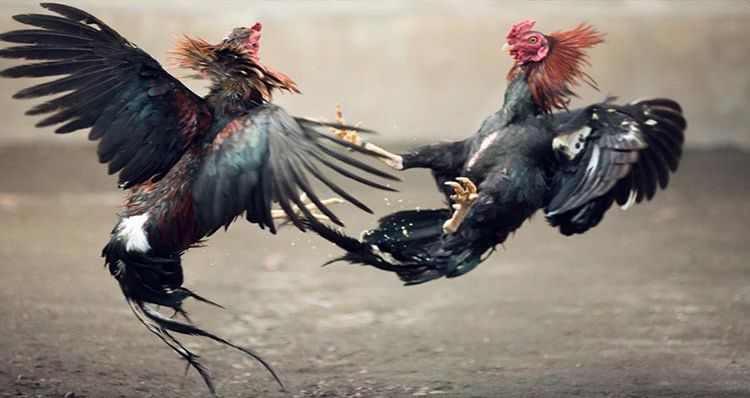
Cockfighting has long been a controversial sport, often viewed through the lens of animal brutality and violence. However, aside from the blood and the combat that often dominate discussions around this practice, there lies a rich tapestry of community engagement, tradition, and collective identity. For many involved individuals, cockfighting serves as more than just a contest of birds; it represents a shared journey that fosters camaraderie among breeders, viewers, and supporters. This aspect can often be ignored in mainstream discussions that focus solely on the ethical implications of the activity.
In various societies around the world, cockfighting reflects long-standing customs and serves as a social glue that connects communities as one. Events often draw large crowds, transforming local events into vibrant festivals that celebrate not only the competition but also the connections between individuals. Cockfighting arenas become spaces where stories are shared, relationships are forged, and local cultures are enhanced. Understanding these social dimensions is crucial to understanding the full meaning of cockfighting beyond just its superficial interpretation.
Cultural Significance
Cockfighting has significant roots in many cultures across the globe, often interwoven with customs that extend over centuries. In numerous societies, it serves not only as a form of leisure but also as a ceremony of passage, showcasing valor and breeding practices. The spectacle of birds matching their natural instincts against one another reflects broader themes of competition and honor, making it a important cultural event in areas where it is celebrated.
In parts of Southeastern Asia, especially in nations like the Philippine Islands and Indonesia, cockfighting is not just a mere sport; it is a communal gathering that encourages relationships and solidarity among participants. Events centered around cockfighting often draw large audiences, uniting individuals from different backgrounds. These gatherings have the power to strengthen local traditions, serving as communal glue that binds communities together through common experiences and values.
In addition, cockfighting is often steeped in socio-economic implications, acting as a reflection of local social structures and power dynamics. Wealthier individuals may dominate the sport with their access to superior breeds and training methods, while those less affluent participate as a means of livelihood. This forms a complex web of cultural interaction, where victory or defeat can influence social status and relationships, further embedding the practice within the cultural fabric of the communities participating.
Economic Impact
The sport of cockfighting has traditionally played a significant role in the financial systems of various regions, particularly in countryside areas where it can draw substantial local crowds. RR88 The events create jobs immediately related to the organization of fights, including roles such as breeding specialists, trainers, and handlers. Additionally, venues often employ staff to manage the events, offer concessions, and ensure security. This community economic engagement can revitalize small communities and generate revenue that supports local businesses.
In addition, the gambling aspect related to cockfighting can have significant financial implications. Participants frequently place bets on the outcomes, leading to increased economic circulation within communities. These wagers can range from minor stakes to large sums, all contributing to the regional economy. The thrill of competition and the chance for monetary gain amplify the social engagement of bettors and viewers alike, strengthening community bonds through shared experiences.
Nevertheless, as perceptions of animal welfare change, cockfighting faces obstacles that could impact its economic situation. Legislative reforms in many regions have led to tighter restrictions or outright bans on the practice. This transition can lead to economic downturns for those who have relied on the sport for livelihood, forcing communities to adapt to new economic conditions. As the future of cockfighting becomes more uncertain, those involved must explore alternative avenues to sustain their livelihoods while grappling with the changing societal attitudes on animal treatment.
Legal and Ethical Implicatons
Cockfighting presents a complex landscape of legal and ethical issues. In many countries, this practice is forbidden due to concerns regarding animal cruelty, prompting legal actions against participants and event organizers. Laws varies greatly; while some regions impose severe punishments, others may ignore these activities, reflecting societal perspectives towards animalistic competitions. This difference often leads to intense debates about personal freedom versus animal rights, pushing societies to face their principles concerning treatment of animals in entertainment.
From an ethical standpoint, supporters of the sport often argue for cultural heritage preservation and the freedom of tradition. They contend that it is a longstanding aspect of their cultural identity heritage, viewing the birds as valuable participants rather than mere casualties. Critics, however, highlight the harm inflicted on the birds and point to the consequences of such activities on community views of aggression and cruelty. This ongoing discussion forces communities to weigh the historical importance of the practice against emerging animal rights principles.
The divergence in lawful frameworks and moral views surrounding cockfighting calls for a nuanced comprehension. Many regions are moving towards stricter laws, emphasizing the necessity for humane treatment of all animals, while supporters for the activity rally to maintain its legality. As societies evolve, the discussion around cockfighting continues to reflect larger questions of ethicality, lawfulness, and the role of tradition in a rapidly changing world.